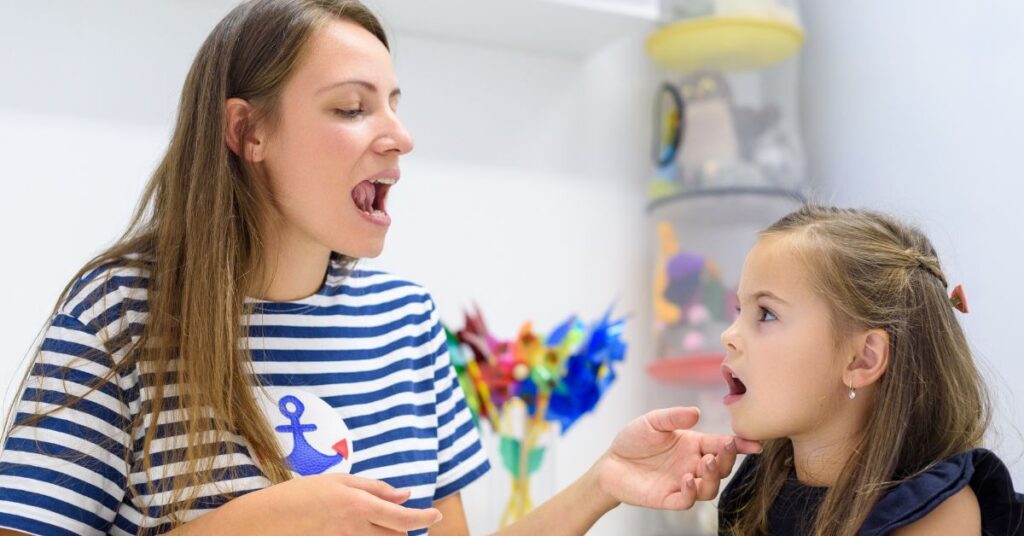It’s normal for kids to mispronounce words, especially when they’re learning to talk. But what if they’re still struggling even after turning five? You might start to worry, especially when you notice other children talking clearly. This can feel confusing, and many parents turn to social media or search engines for answers. One of the most overlooked causes is an articulation disorder or a broader speech sound disorder.
These issues don’t just affect how a child talks. They can lower confidence, affect friendships, and even delay learning. The good news? These disorders are treatable, especially when diagnosed early by a speech pathologist. The key step is finding the right disability service provider who understands your child’s unique needs.
What is articulation disorder?
Articulation disorder is a condition for difficulty producing speech sounds (phonemes) accurately due to imprecise placement, timing, pressure, speed, or coordination of movements involving the lips, tongue, or throat. An articulation disorder happens when a child has trouble forming speech sounds correctly. It can make their speech hard to understand. The problem isn’t with hearing or intelligence — it’s with how their mouth, tongue, lips, or jaw move.

Common signs include replacing sounds (like “wabbit” for “rabbit”), skipping sounds, or adding extra ones. A disability service provider that includes speech therapy in its support can help kids overcome these challenges.
What are 4 types of articulation disorders?
There are four common types of articulation disorders, and each one affects speech in a different way:
- Substitution: One sound is swapped for another (e.g., “tat” for “cat”).
- Omission: Sounds are left out entirely (e.g., “ca” instead of “cat”).
- Distortion: Sounds are produced incorrectly (e.g., a lisp).
- Addition: Extra sounds are added (e.g., “buhlack” instead of “black”).
A qualified speech therapist, through a trusted disability service provider, can assess which type your child has and create a plan to help.
Can articulation disorder be cured?
Yes, articulation disorder can be treated successfully in most cases. Many children show major improvement with regular support and speech therapy. The earlier it starts, the better the results.
Progress depends on the child’s age, type of disorder, and how often they attend therapy. A skilled disability service provider will offer consistent guidance and track improvements over time.
How to help a child with articulation disorder?
Parents play a big part in supporting a child with speech difficulties. Here’s how to help:
- Talk to a speech pathologist for a proper diagnosis.
- Practice sounds and words at home using play-based techniques.
- Read books together and repeat words clearly.
- Choose a disability service provider that offers speech support.
Small daily habits can lead to big improvements. With patience and help, your child can grow more confident in their communication.
Is articulation disorder genetic?
Research shows there can be a genetic link to articulation disorders. If one parent had similar issues, the child may be more likely to have them too.
However, not all cases are inherited. Some happen due to hearing problems, brain development, or physical issues like cleft palate. That’s why proper screening is important. A disability service provider can help find the root cause and match the right support to your child.
Key Takeaways
Speech struggles can be worrying for parents, but they’re often treatable. Articulation disorder and speech sound disorder affect how children produce words, and they can make daily communication difficult. The earlier these are addressed, the better the outcome.
There are different types of articulation disorders, and each one may need a unique approach. Support from a speech pathologist and a reliable disability service provider can bring steady progress. With the right tools and care, your child can develop clearer, more confident speech.
FAQ
What age should speech therapy start for articulation disorder?
Most therapists recommend starting by age 4 or 5, earlier if issues are clear.
How long does speech therapy usually take?
It varies, but many children show improvement within 6 to 12 months of regular sessions.
Do all children outgrow articulation disorders naturally?
Not all. Some may need structured support to correct speech patterns.
Can adults have articulation disorders too?
Yes, although it’s more common to treat them in childhood, adults can benefit from therapy as well.
Is a speech sound disorder the same as an articulation disorder?
No. Speech sound disorder is a broader term that includes articulation, phonological, and other speech issues.

